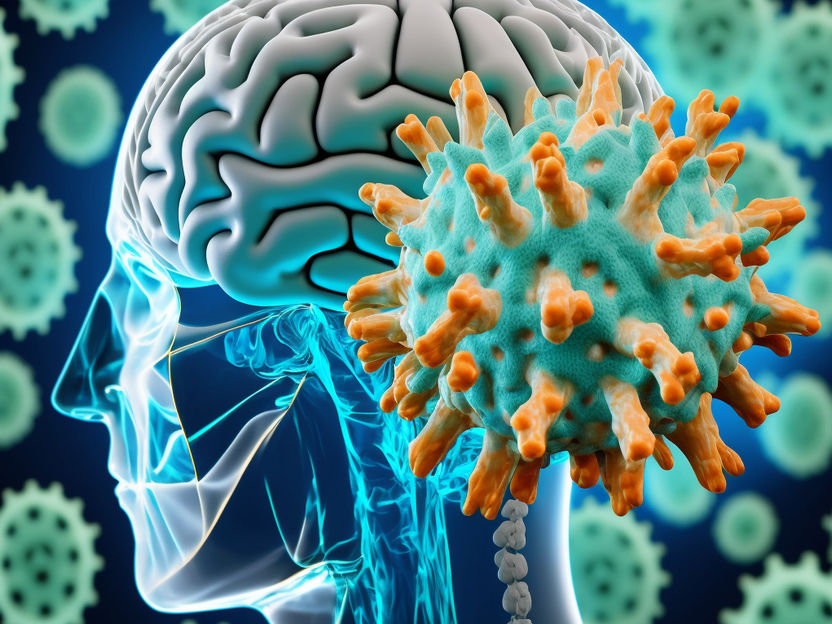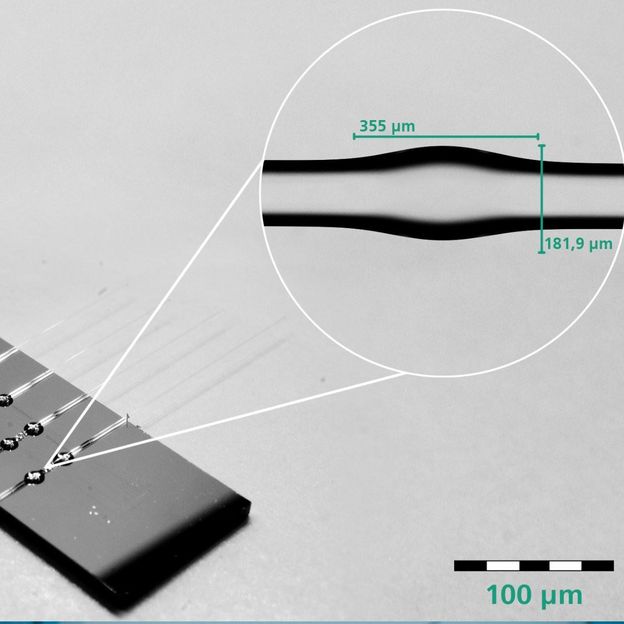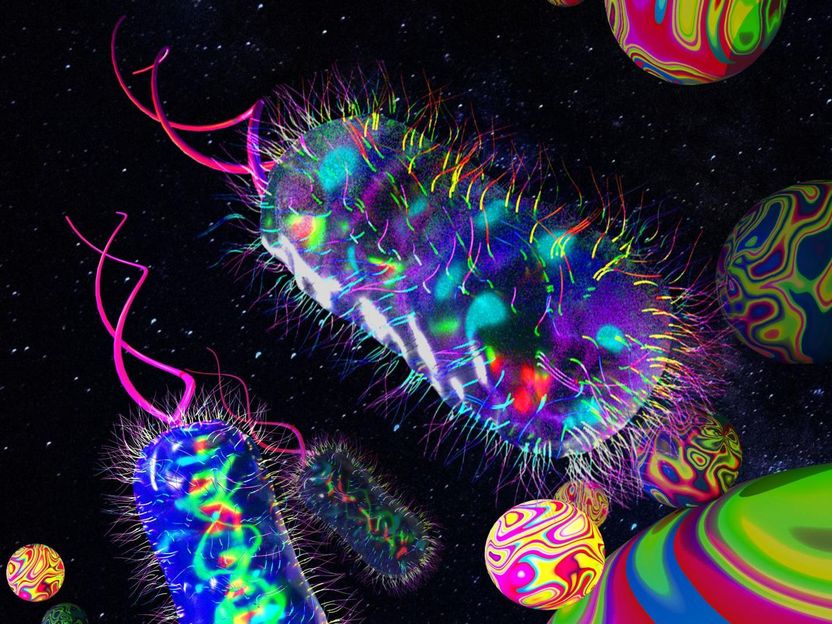Does COVID-19 accelerate the aging process of the brain?
Severe COVID-19 linked with molecular signatures of brain aging
Although Covid-19 is primarily a respiratory disease, neurological symptoms have been described in many COVID-19 patients, including in recovered individuals. Patients report symptoms including brain fog or lack of focused thinking, memory loss and depression, and scientists have demonstrated that patients with severe COVID-19 exhibit a drop in cognitive performance that mimics accelerated aging. But, the molecular evidence for COVID-19's aging effects on the brain is lacking.

Symbolic image
Computer-generated image
In a series of experiments, scientists at Beth Israel Deaconess Medical Center (BIDMC), found that gene usage in the brains of patients with COVID-19 is similar to those observed in aging brains. Using a molecular profiling technique called RNA sequencing to measure the levels of every gene expressed in a particular tissue sample, the scientists assessed changes in gene expression profiles in the brains of COVID-19 patients and compared them to those changes observed in the brains of uninfected individuals. The team’s analysis, published in Nature Aging, suggested that many biological pathways that change with natural aging in the brain also changed in patients with severe COVID-19.
“Ours is the first study to show that COVID-19 is associated with the molecular signatures of brain aging,” said co-first and co-corresponding author Maria Mavrikaki, PhD, an instructor of pathology at BIDMC and Harvard Medical School. “We found striking similarities between the brains of patients with COVID-19 and aged individuals.”
Mavrikaki and colleagues analyzed a total of 54 postmortem human frontal cortex tissue samples from adults 22 to 85 years old. Of these, 21 samples were from severe COVID-19 patients and one from an asymptomatic COVID-19 patient who died. These samples were age- and sex-matched to uninfected controls with no history of neurological or psychiatric disease. The scientists also included an age-and sex- matched uninfected Alzheimer’s disease case for analysis as a control to a COVID-19 case which had co-morbid Alzheimer’s disease, as well as an additional independent control group of uninfected individuals with a history of intensive care or ventilator treatment.
“We observed that gene expression in the brain tissue of patients who died of COVID-19 closely resembled that of uninfected individuals 71 years old or older,” said co-first author Jonathan Lee, PhD, a postdoctoral research fellow at BIDMC and Harvard Medical School. “Genes that were upregulated in aging were upregulated in the context of severe COVID-19; likewise, genes downregulated in aging were also downregulated in severe COVID-19. While we did not find evidence that the SARS-CoV-2 virus was present in the brain tissue at the time of death, we discovered inflammatory patterns associated with COVID-19. This suggests that this inflammation may contribute to the aging-like effects observed in the brains of patients with COVID-19 and long COVID.”
“Given these findings, we advocate for neurological follow-up of recovered COVID-19 patients,” said senior and co-corresponding author Frank Slack, PhD, director of the Institute for RNA Medicine at BIDMC and the Shields Warren Mallinckrodt Professor of Medical Research at Harvard Medical School. “We also emphasize the potential clinical value in modifying the factors associated with the risk of dementia — such as controlling weight and reducing excessive alcohol consumption — to reduce the risk or delay the development of aging-related neurological pathologies and cognitive decline.”
Better understanding of the molecular mechanisms underlying brain aging and cognitive decline in COVID-19 could lead to the development of novel therapeutics to address cognitive decline observed in COVID-19 patients. The team is now trying to understand what drives the aging-like effects in the brains of COVID-19 patients.
Original publication
Other news from the department science

Get the life science industry in your inbox
By submitting this form you agree that LUMITOS AG will send you the newsletter(s) selected above by email. Your data will not be passed on to third parties. Your data will be stored and processed in accordance with our data protection regulations. LUMITOS may contact you by email for the purpose of advertising or market and opinion surveys. You can revoke your consent at any time without giving reasons to LUMITOS AG, Ernst-Augustin-Str. 2, 12489 Berlin, Germany or by e-mail at revoke@lumitos.com with effect for the future. In addition, each email contains a link to unsubscribe from the corresponding newsletter.
Most read news
More news from our other portals
Last viewed contents
Wegener's_granulomatosis
Tricholoma_argyraceum
Super_Bowl_XXXVIII_halftime_show_controversy
Nolanea

Point-of-care diagnostics for multiple diseases, courtesy of photonics technology - New generation of diagnostic systems






















































